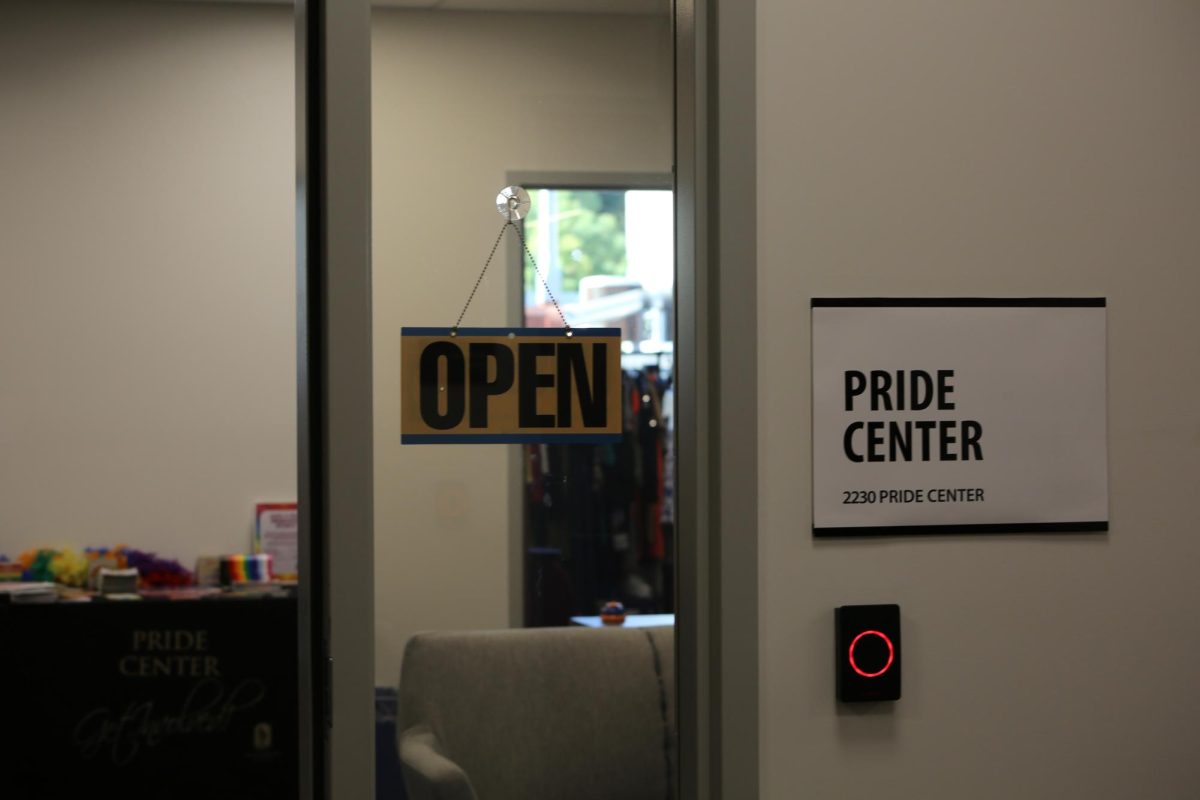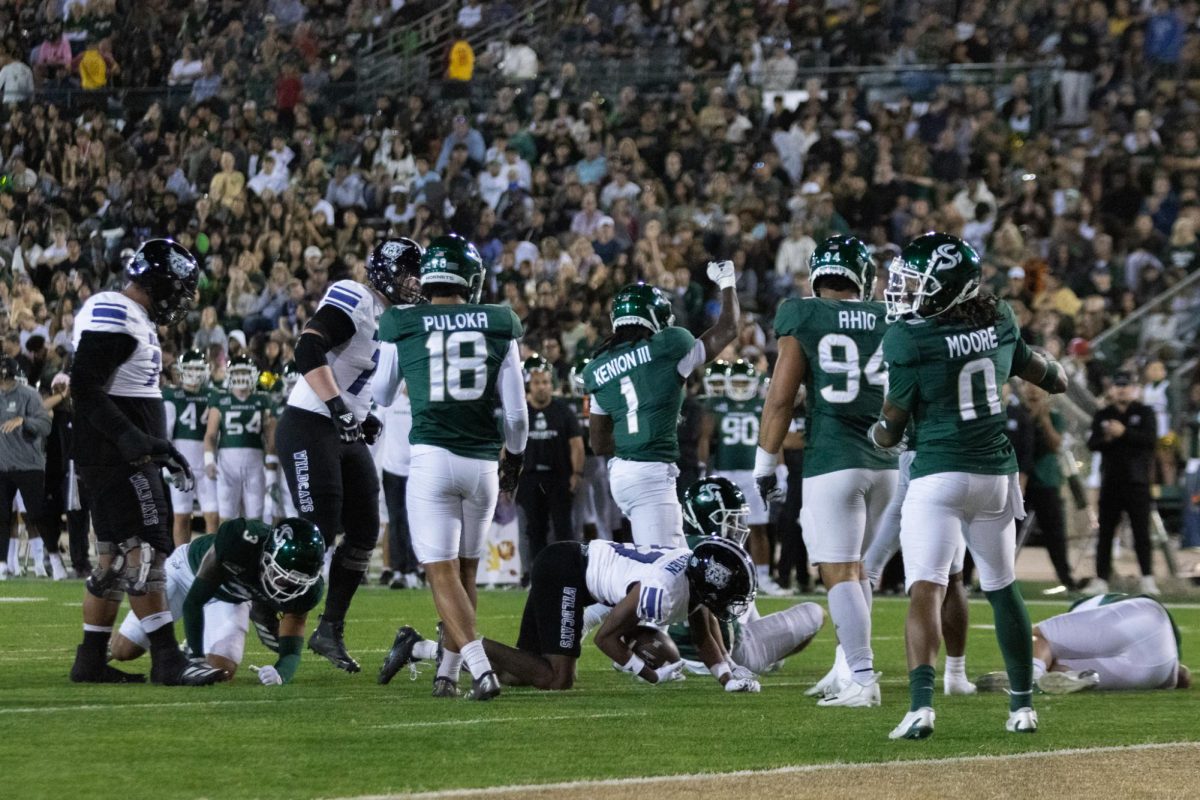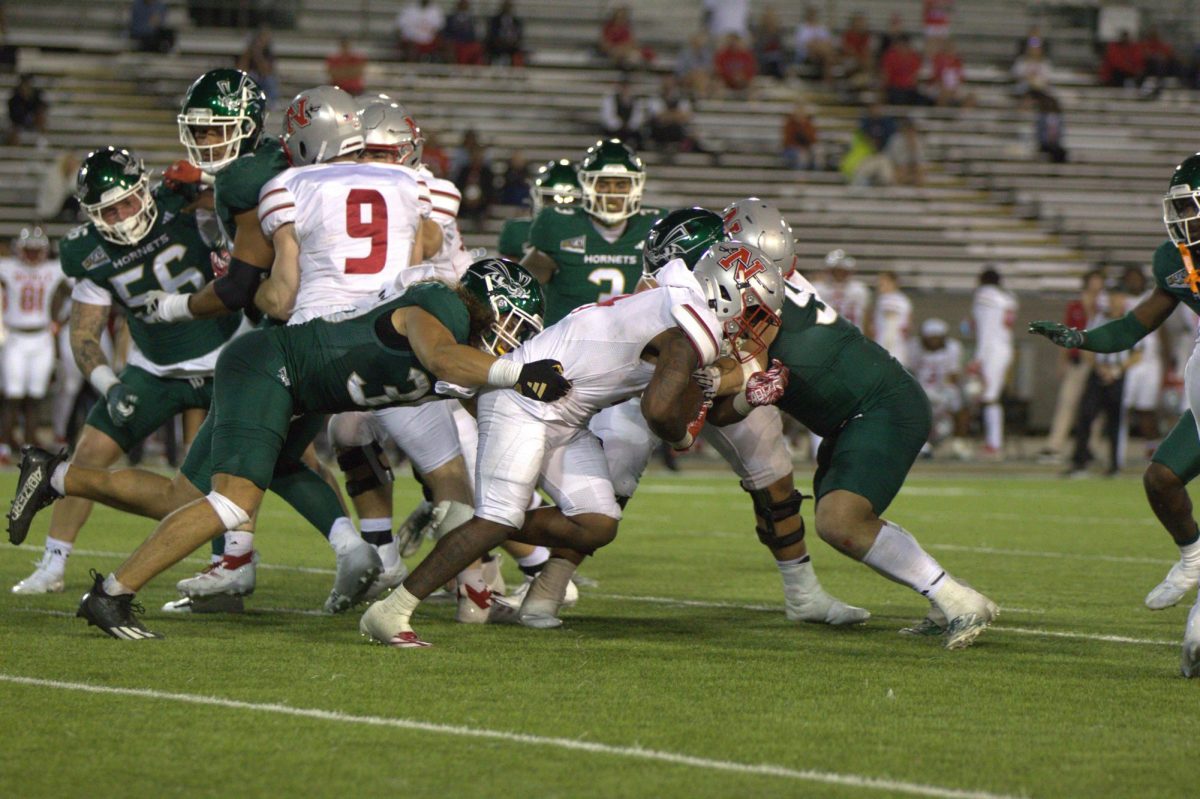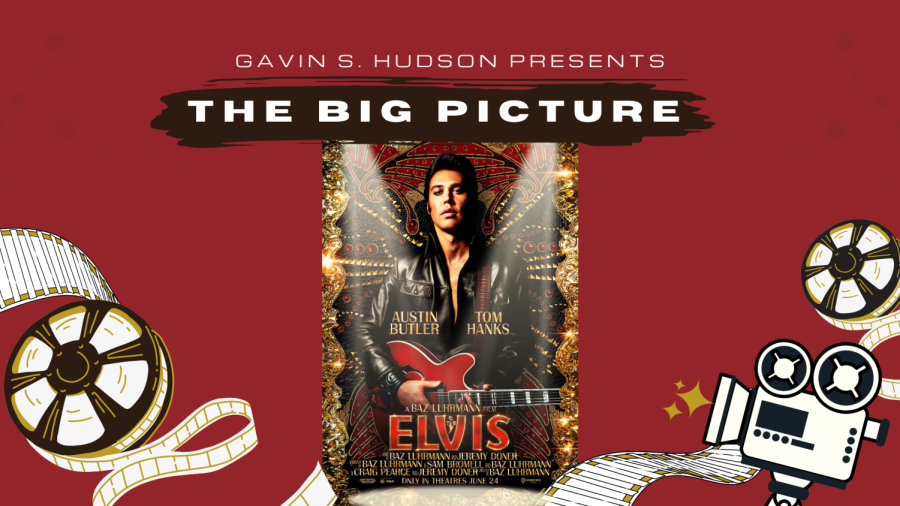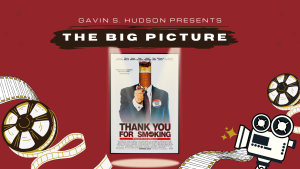The Big Picture: ‘Elvis’
Graphic created in Canva by Dominique Williams and Gavin S. Hudson. Movie poster courtesy of Warner Brothers Bros. Pictures.
November 27, 2022
Disclaimer: This review will contain light spoilers for the film.
Director Baz Luhrmann’s latest venture, “Elvis” tells the story of the iconic American Rock ‘n’ Roll legend and his struggle to fight his addiction to fame.
From the attention to detail in recreating Elvis’ evocative stage presence to the smooth cadence of his voice, Austin Butler gives his all and proves to audiences that he was the perfect choice to play Presley.
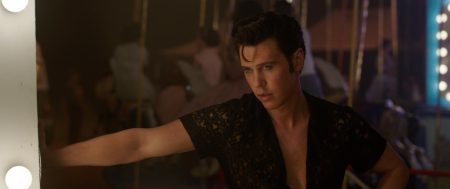
His emotional range humanizes this polarizing American icon and gives the audience a glimpse into how Elvis was human, despite holding a godly power over the public. I cannot give enough praise to this performance; for first-time viewers, just know that Butler is the best thing this film has to offer.
When Luhrmann recreates the 50’s footage style for certain events, it looks incredible. The grainy, low-quality picture being juxtaposed with the brightness and color of that era nails the appeal of that time.
The costume design is Oscar-worthy. Elvis’ outfits are perfectly recreated and emphatically illustrates the ostentatious nature of his attire.
The beginning of his Vegas residency illustrates his attempt to create a grandiose performance in hopes of mounting “the best show on Earth.” The Vegas stage design is impeccable and beautifully conveys the nature of not only the show but in capturing how Elvis was a larger than life figure in America.
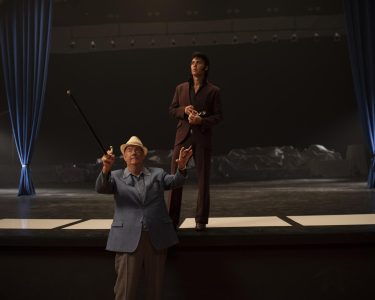
There is great thematic detail utilized in Colonel Parker’s dialogue. When he is explaining to the viewer why Elvis died, he says “you killed him,” highlighting how audiences’ love for him — and in turn his addiction to fame — is ultimately what led to his demise.
While the irony of the film, which looks to profit off of his likeness and image, tells the audience that they are in fact what killed him isn’t lost on me; using the word “you” instead of spelling out how fame killed him is a nice touch.
Sadly, this is where my praise for the film ends.
Tom Hanks as “Colonel” Tom Parker, Presley’s Manager, feels out of place. While I wouldn’t say it is his fault, Hanks sticks out like a sore thumb with a cartoonish accent, breaking the immersion in any scene he is in.
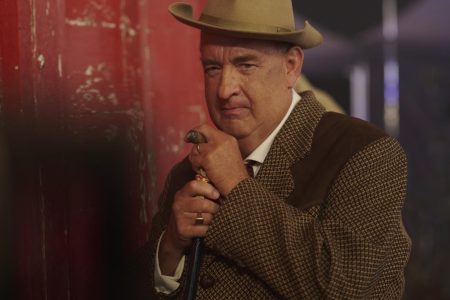
After reviewing footage of the real Tom Parker, it is clear that the accent was simply unnecessary and over the top. If it was done to exclusively highlight Parker as a carnival manager whose sole intention was to leech off of Elvis in any way possible, it still doesn’t add meaning to the character.
This should be obvious, but hip-hop shouldn’t have been in this movie. It was. With most of the film being a period piece, Doja Cat or Denzel Curry doesn’t belong at Beale Street in Memphis (the home of Rock ‘n’ Roll).
Production that utilizes the music of the time period better immerses the audience in the setting instead of taking the viewer out of the movie, which the soundtrack tends to do.
Certain details that are essential to the characters and overall plot in the film are poorly handled. Two key examples are “Taking Care of Business” and Parker’s gambling addiction.

Central to some of the promotional material for the film, and a lot of Elvis’ marketing, is his catchphrase, “Taking Care of Business” or “TCB.” It’s mentioned only once in the film by Parker.
The Colonel’s gambling addiction is illustrated poorly. He gambles for about thirty seconds in the entire film, most of which are scenes metaphorically representing him gambling with Elvis’ life (in a very visually unpleasing way).
Colonel Parker and another one of Presley’s “hippie managers” are involved in a shouting match at a point in the film. Two shots make up the scene with zero consistency between them.
In one shot, the manager is yelling and very animated and in the other, he remains placid and holds no emotion or conviction.
The worst aspect of this film is the editing. The longest a shot hangs on screen was about ten seconds. In a nearly three hour long film, every shot is cut within a matter of milliseconds — enough to cause whiplash.
Certain scenes that would be advantageous to linger on cut immediately to the next scene instead of letting the emotional weight resonate with the viewer.
There is a scene where Elvis is still in the military and telling his love interest that his biggest dream was to be a movie star. A short while later, we see Elvis talking to new managers about how he used to dream about being a movie star, acknowledging that it didn’t work out for him.

The film would benefit from letting the weight of his failed movie career — something he was so passionate about — sink in for audiences and illustrate the divide between him and Parker. Instead, the whole thing is watered down in a montage of him in a few low-rate films.
We are given a cinematic venture that would rather show you the next scene than show you why each scene is important for the characters. Overall, “Elvis” ends up as a 3/10 and my least favorite movie of the year.





